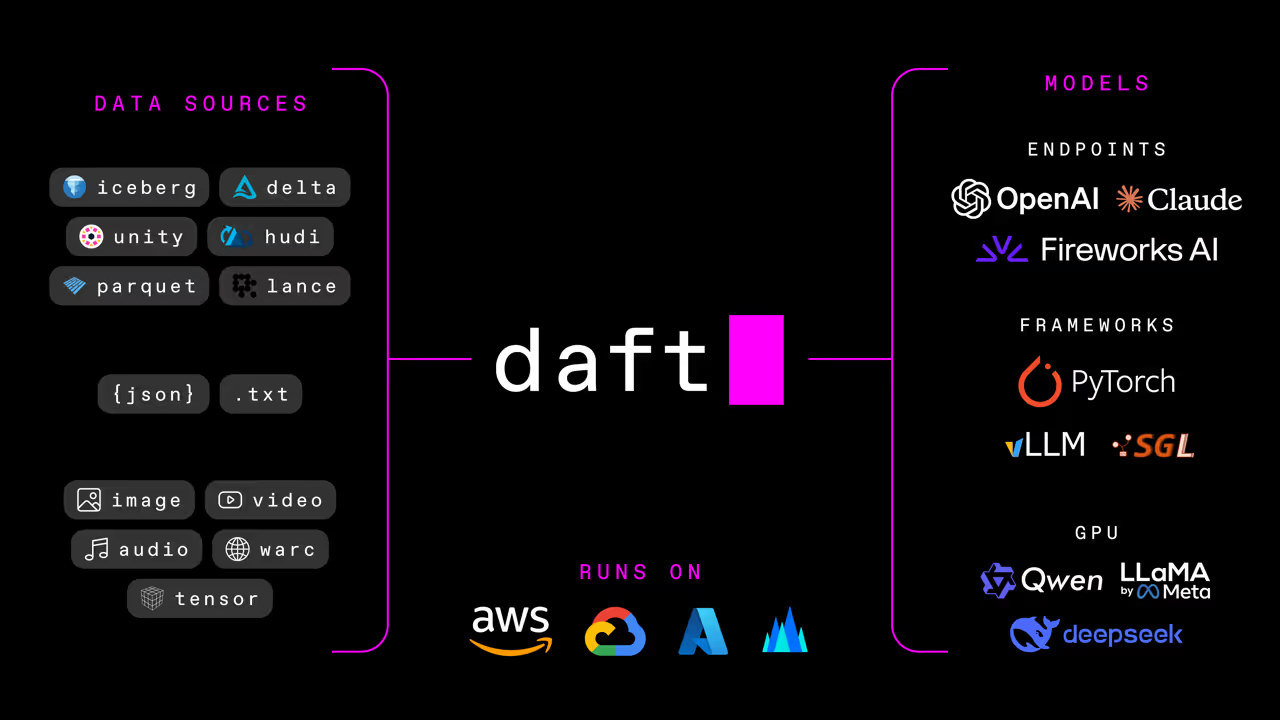
Eventual envisions a world where the complexities of multimodal unstructured data no longer hinder innovation in AI. By pioneering a seamless and scalable query engine designed from the ground up for images, video, audio, and text, we empower engineers to focus on breakthroughs rather than infrastructural limitations.
Our technology harnesses the power of distributed computing and open-source collaboration to redefine how AI applications handle vast and diverse datasets. We are building the foundational infrastructure that will enable the next generation of AI systems to thrive and evolve with agility and precision.
At Eventual, we are committed to transforming the future of data processing to unlock new possibilities for autonomous vehicles, foundation models, and beyond—creating a future where data complexity fuels, rather than stalls, innovation.
Our Review
We've been tracking Eventual since their Y Combinator days, and honestly, they're tackling one of those "why didn't someone build this sooner?" problems. If you've ever tried to wrangle petabytes of images, videos, and audio files using tools designed for spreadsheets, you'll immediately get why their Daft engine exists.
The founding story hits close to home for anyone who's worked with real-world AI data. Founders Sammy Sidhu and Jay Chia were grinding through autonomous vehicle datasets at Lyft when they realized something absurd: engineers were spending more time fighting infrastructure than actually solving AI problems. Instead of accepting this as "just how things work," they decided to build something better.
What Makes Daft Different
Daft isn't trying to force multimodal data into SQL-shaped boxes. It's built from the ground up in Rust and Python to handle the messiness of real-world data — the kind where you're querying across millions of dashcam videos or processing audio files alongside text and images.
We appreciate that they're not overselling the complexity. Their pitch is refreshingly honest: "AI data is inherently messy, so let's build tools that embrace that reality." No magic bullets, just solid engineering that scales to production workloads.
The Open Source Advantage
Here's where Eventual gets interesting — Daft is open source, which means you can actually kick the tires before committing. We've seen too many data infrastructure companies lock everything behind enterprise contracts, making it impossible to evaluate fit.
The fact that AWS, Mobileye, and Together AI are already running this in production tells us the technology works beyond the demo stage. That's not always a given with early-stage infrastructure tools.
Who This Really Helps
If you're building AI systems that need to process massive amounts of unstructured data — think autonomous vehicles, foundation models, or recommendation engines — Eventual could save your team months of infrastructure headaches. We're particularly excited about their potential impact on smaller AI teams who don't have the resources to build distributed systems from scratch.
With $30 million in funding and a team packed with veterans from Databricks, Tesla, and Meta, they're well-positioned to become the standard for multimodal data processing. Sometimes the best companies are the ones solving problems that seem obvious in hindsight.
Feature
Open-source AI data engine named Daft
Python-native distributed data processing
Optimized for cloud and GPU clusters
Declarative queries over multimodal unstructured data
Scales to petabytes with fault tolerance
Integrates with external APIs for AI operations








